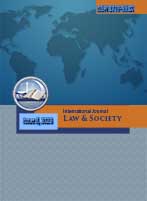Conclusion of the Symposium: Ukraine, land of genocide?
Keywords:
genocide, the crime of genocide, Russia’s aggression against UkraineAbstract
The offence of genocide is a criminal offence. It is strictly defined. For genocide to take place, there must be a legal element, a material element and an intentional element. The repetition of horrific massacres is not sufficient to qualify the existence of this offence. Legally, the qualification of genocide also presupposes an incriminating text and a genocidal intent.
The current situation of Russia’s invasion of Ukraine must be confronted with international criminal law.
Obviously, the designation of an international crime is no longer an end in itself. Since the beginning of the twentieth century, but especially since 1945, international crimes have not only led to philosophical or diplomatic condemnation. International criminal law was built so that the perpetrators of these crimes could be prosecuted and convicted. Since 1999, it has adopted the Rome Statute, which established the International Criminal Court (ICC).
Among the international crimes committed by Russia during the invasion of Ukraine, some do not fall within the jurisdiction of the International Criminal Court, while others do.
The crime of aggression is a dispute between states. The prosecution of crimes of aggression is, in general, frustrating for lawyers. But, in reality, there was a crime of aggression committed by Russia against Ukraine. Russia must answer for this. The prosecution of the Russian state will necessarily be insufficient in terms of the facts prosecuted, with regard to the perpetrators likely to be convicted and/or the victims of the abuses committed by Russia on Ukrainian territory.


